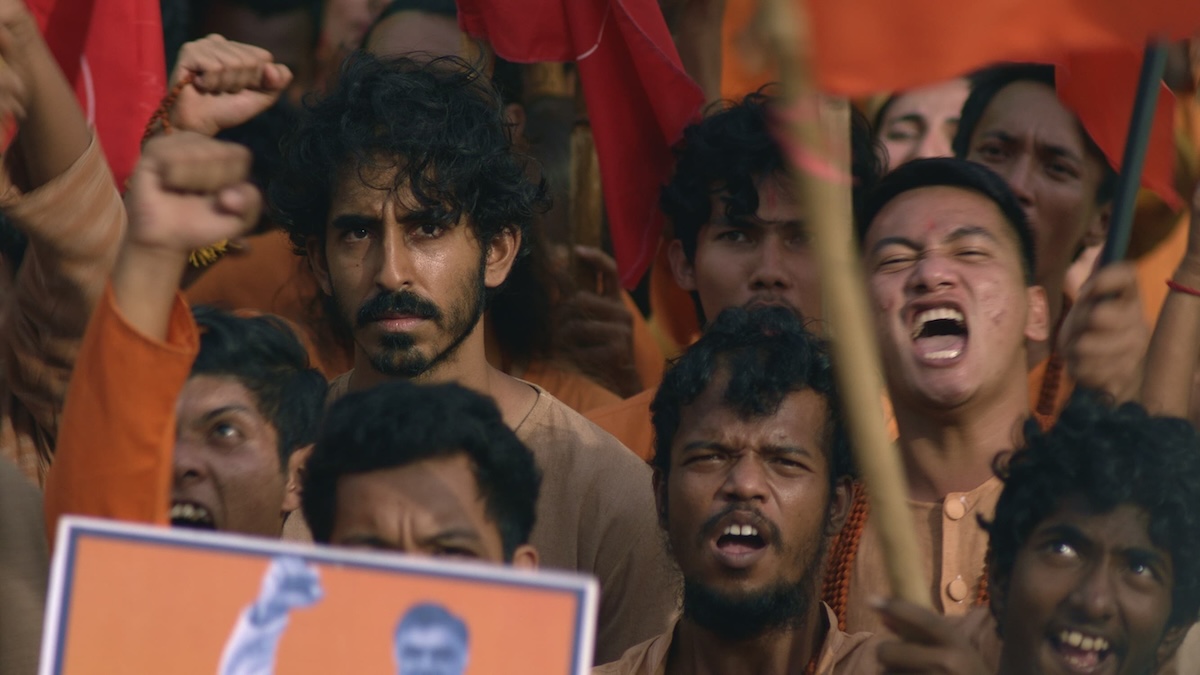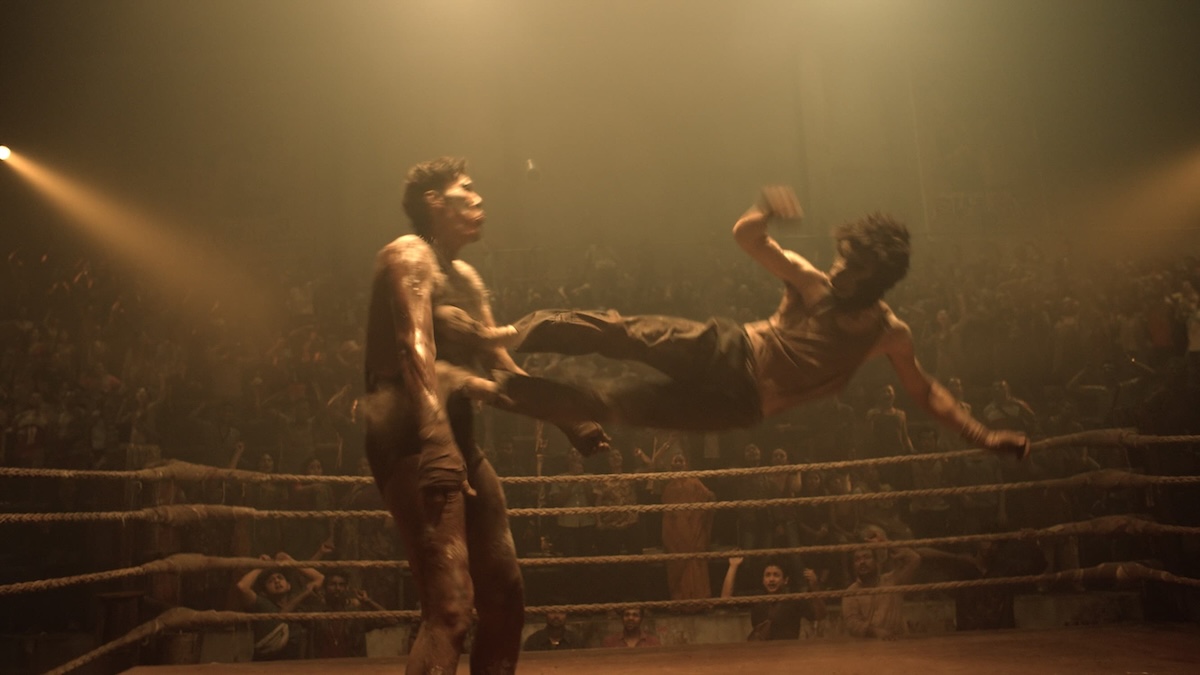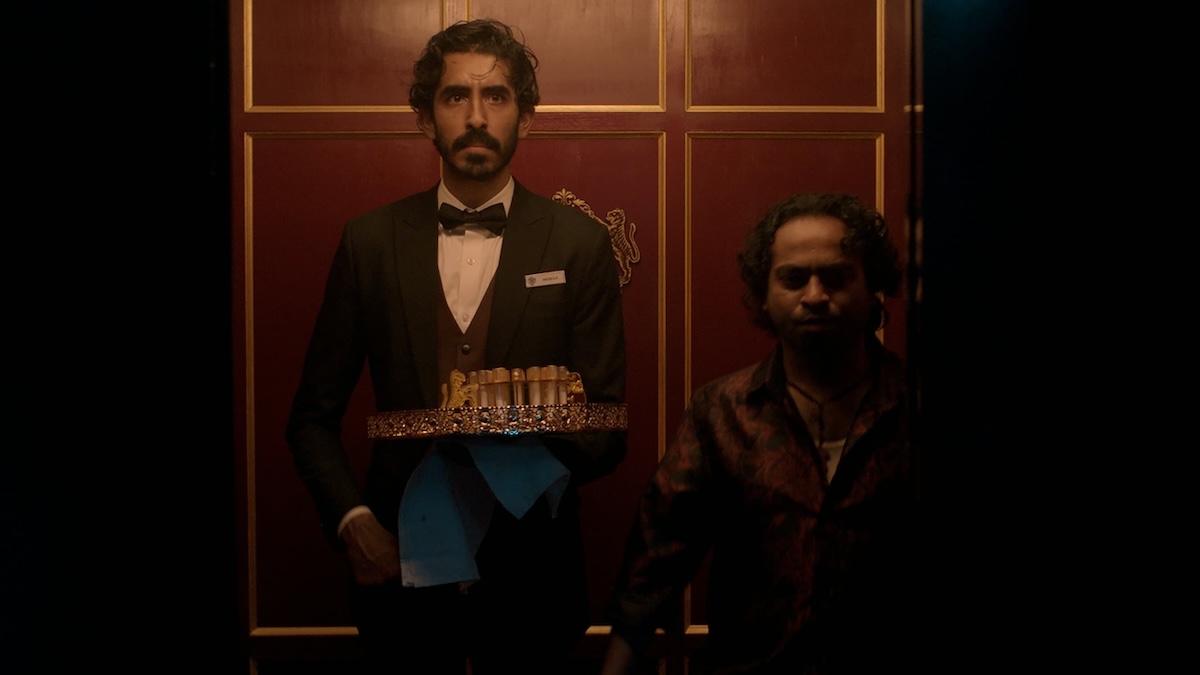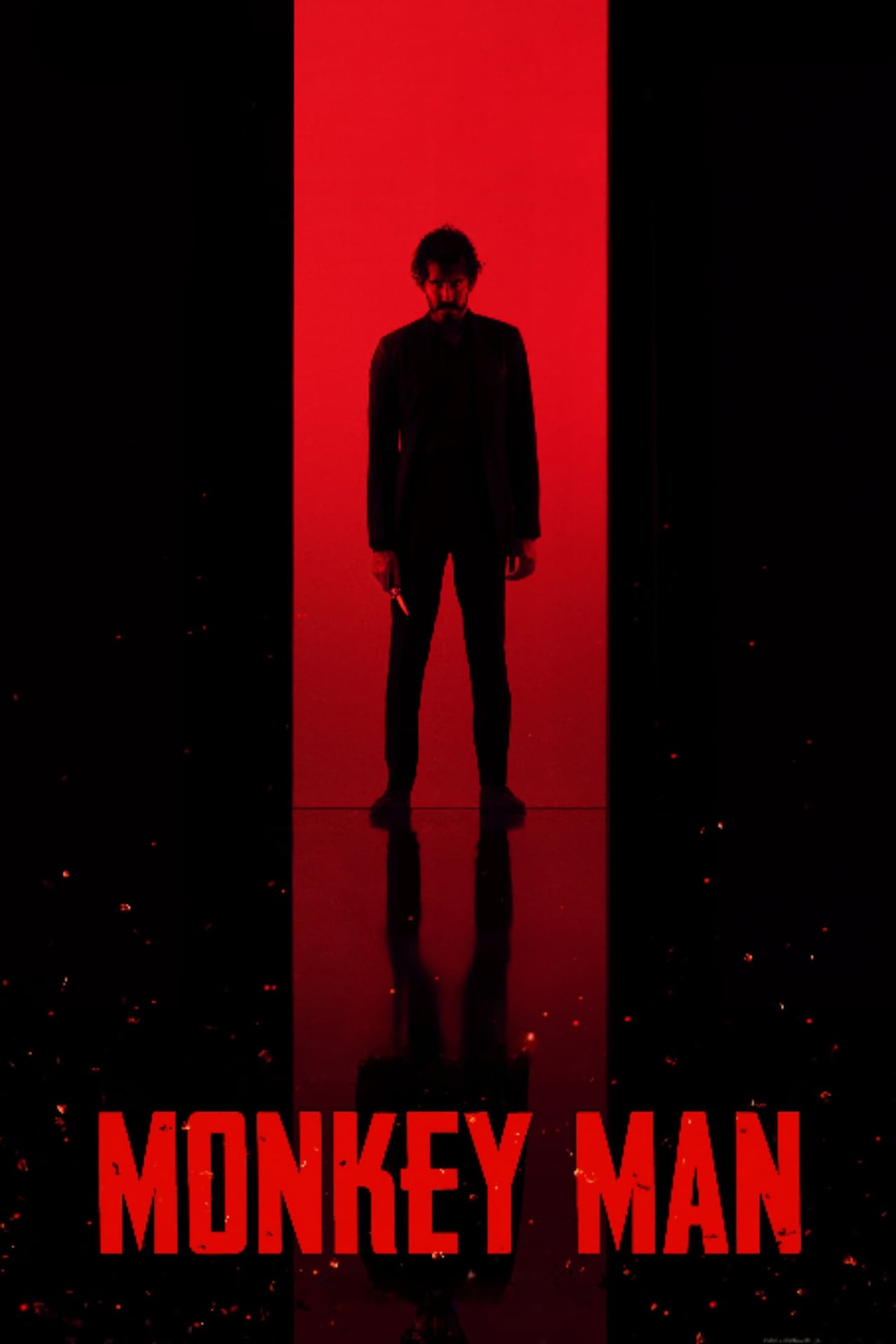MONKEY MAN (2024)
An anonymous young man unleashes a campaign of vengeance against the corrupt leaders who murdered his mother and continue to systemically victimise the poor and powerless.

An anonymous young man unleashes a campaign of vengeance against the corrupt leaders who murdered his mother and continue to systemically victimise the poor and powerless.


Dev Patel didn’t hold back with his directorial and screenwriting début. Monkey Man is a bloody, often terse film that speaks through its violence and politics—and it speaks loudly. Patel takes on Hindutva (India’s Hindu nationalism) with such force that Indian censors have thus far banned the film. Plus, Patel crafted Monkey Man’s message without the clumsiness you typically find in a début effort. Despite imperfections, it’s easy to admire Monkey Man as Patel’s first movie.
The film opens with a mother recounting the Hindu myth of Hanuman to her son. Hanuman, a half-man, half-monkey deity, climbs high into the sky to devour a golden mango. However, upon eating the mango, Hanuman realises he’s consumed the sun. As punishment, the Gods strip him of his powers. The son then asks his mother, “What happens next?” In this reimagining of the myth, the film itself becomes the answer: Monkey Man is what happens next.
Decades in the future, Kid (Patel) has grown up. At night, he dons a chimp mask to participate in an underground boxing ring. He’s become Hanuman, fighting back. Kid fights for simpler reasons than his simian idol, however. He needs more money, so he gets scheming. He conjures up half-baked plan after half-baked plan. He taps into a network of petty criminals to somehow land him a job within high society. He then burrows deeper into the belly of the beast, weaselling his way into promotions, ever closer to the heart of India’s wealth. Kid has an untold history with the figures he clashes with in this avaricious, Indian underworld. He regards them with knowing contempt. Like Hanuman, it seems Kid is after the golden mango and bears a grudge against the Gods who’d rather he not have it.

Kid’s Gods live amongst the glass and steel skyline of Yatana, a fictional city that serves as a Mumbai analogue. Forgive the cliché, but Yatana is a crucial character within the film. It embodies, physically, the film’s political core. It juxtaposes opulence with squalor, the haves with the have-nots. Both groups choose to live in ignorance of each other.
In Yatana, the meshwork of slums provides Kid with refuge at various points, while the lush interiors of the rich and famous consistently evoke Kid’s traumas. One sequence sees Kid traverse from rooftop to rooftop, evading capture before a bullet knocks him off his feet. We watch as Kid falls from the ledge of a modern building onto the rickety metal roof of a slum dwelling, and then into the river. As Kid falls, we see his place in the world seemingly lower beside him. There’s a metaphor here if one squints. Thankfully, it’s not heavy-handed; the imagery works on a subconscious level.
It’s in these moments that I was most impressed by Patel as a director. He’s woven a believable and weighty world, bending a plot to fit brilliantly within his creation. Monkey Man is a coherent, unified vision from its politics to its costumes and setting.

Aside from his directorial skills, Patel earns his living with the acting that landed him this opportunity in the first place. His central performance as Kid comes across as frenetic and wounded, lacking confidence yet headstrong. He delivers these traits with full force. The only problem is that the character, and consequently Patel’s performance, is rather one-dimensional. There’s little subtlety and even less variety in the emotions Kid expresses. While I felt immense anger during Monkey Man, I was left wishing I’d experienced a wider range of emotions. When the film attempts to evoke sadness or nostalgia, it falls short.
I should mention why this film makes you so angry and why it won’t be shown in India as of this writing. This is a heavy, personal criticism of religious violence and separatism in India, specifically Hindutva (again, the Hindu nationalist movement gaining momentum in the country). Monkey Man is an allegory for Hanuman as a Hindu source of resistance against itself. Kid is the everyman cast out of his home, coming back to get revenge on his makers.
Beyond the specifics of Indian politics, there’s a more central, universal message that underpins Monkey Man. Patel believes poor politics are the result of inadequate healing. Aggressive movements stem from anxieties and generational traumas left unchecked in individuals, who then find an outlet in politics. Essentially, Monkey Man is a call for therapy. It’s a film about the dance between the internal and the political. It explores the individual versus the system, mental health, and the choices we make between healthy and unhealthy forms of expression.

Patel completely convinced me of this message. But the film itself is confused. It urges us to break cycles of violence and to stand up for what’s right, yet the solution seems to be more bloodshed. An action thriller might not have been the best choice for conveying this message. It’s inconsistent. But then again, consistency be damned if the action is this good.
This film was clearly made by action fans. Special recognition should go to the stunt crew and coordinators, as well as everyone involved in creating the fantastic fight scenes. Patel also deserves credit. Unlike his sympathetic characters in the past, he’s here shown to be powerfully built and wiry, excelling in the role of the hardened leading man.
These days, finding new and interesting ways to dispatch goons is a challenge, but Monkey Man delivers at least three such moments that had me squirming in my seat. That’s why you pay your money to see Monkey Man. It’s John Wick (2014) in a new suit, wielding a knife instead of a gun. There’s even a John Wick joke in a wink to the inspiration when Kid goes to buy a sidearm. And there’s a cute dog, too.

Unlike John Wick’s static, controlled camerawork, Monkey Man employs the wobbliest of shaky cam. This complements the gritty realist style, but as with all shaky cam action films, the technique becomes tiresome. Nonetheless, I could follow the fights easily, and my only complaint is that I craved more action and less exposition. The action sequences are genuinely good, but Monkey Man spends a touch too long setting them up. This film leans too heavily on recent trends, incorporating flashbacks and fragmented timelines to build tension that wasn’t necessary. When Monkey Man strays from its strengths, it loses its way entirely.
Yet, the story of Hanuman never makes empty promises. Hanuman was a flawed deity. He had to endure growing pains to become the warrior he was destined to be. Compared to these growing pains, Patel could have had it far worse. He delivers a truly thrilling clash with the gods that leaves me yearning to know: what happens next?
USA • CANADA • SINGAPORE • INDIA | 2024 | 121 MINUTES | 2.39:1 | COLOUR | ENGLISH


director: Dev Patel.
writers: Dev Patel, Paul Angunawela & John Collee (story by Dev Patel).
starring: Dev Patel, Sharlto Copley, Pitobash, Vipin Sharma, Sikandar Kher, Adithi Kalkunte, Sobhita Dhulipala, Makarand Deshpande, Jatin Malik & Zakir Hussain.
